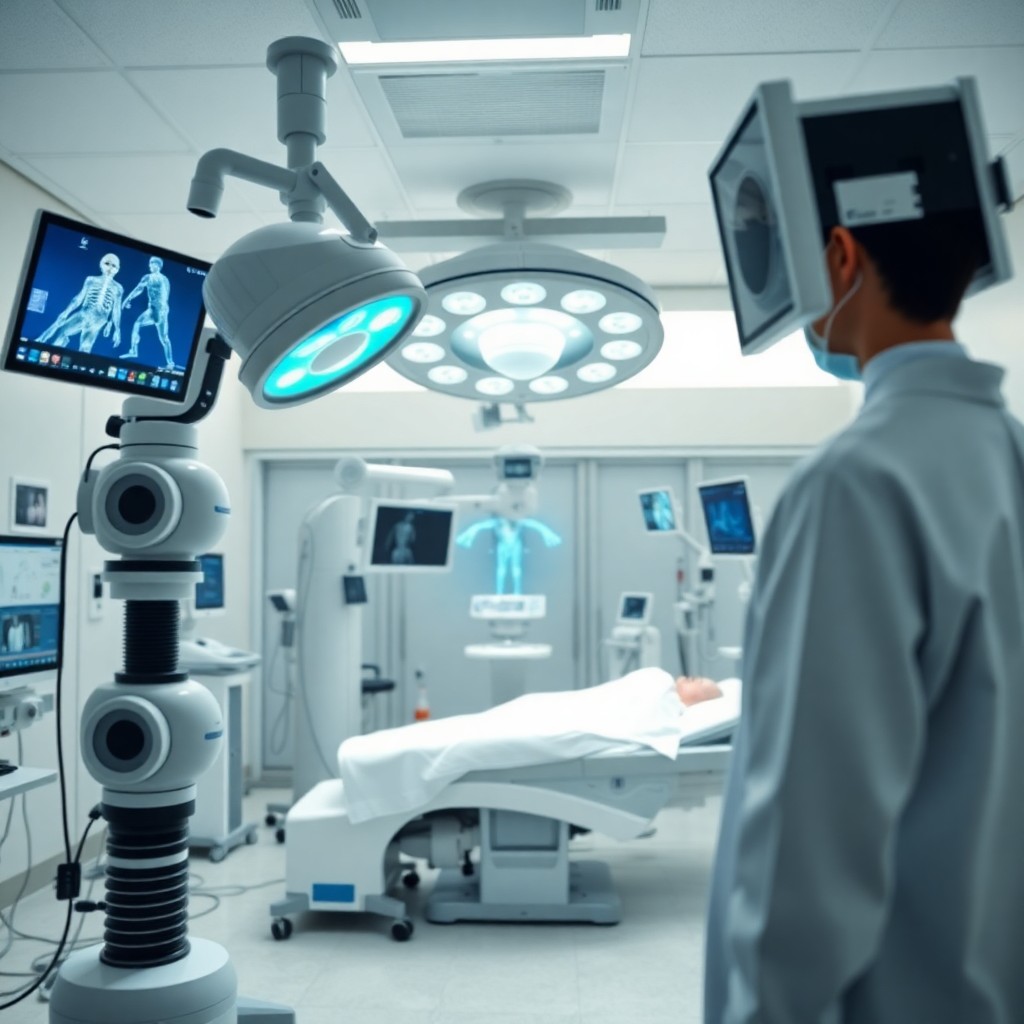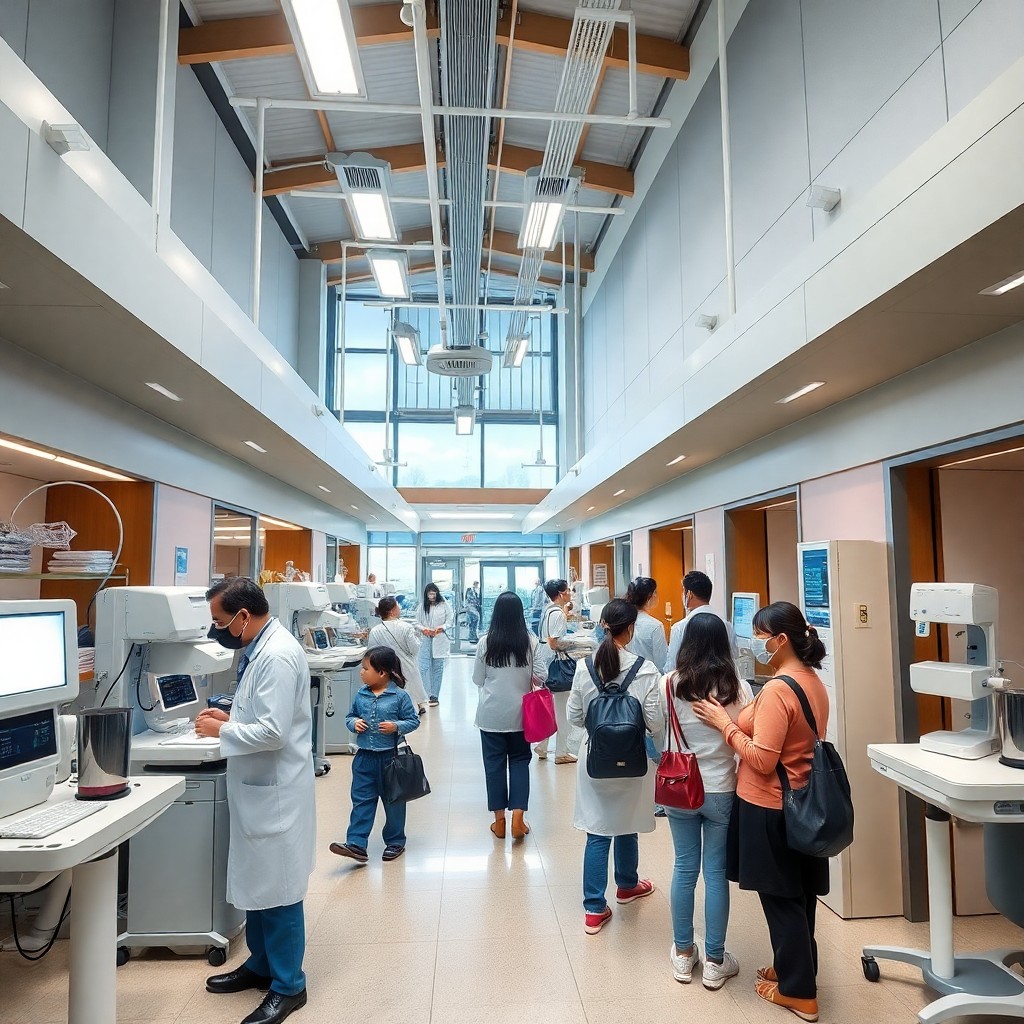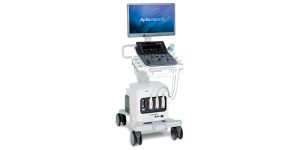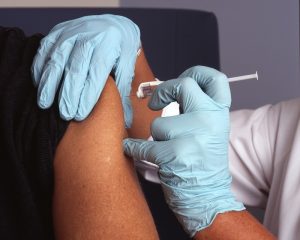As you consider your options for medical tourism, you’re likely drawn to Japan’s reputation for cutting-edge technology, innovative treatments, and world-class healthcare facilities.
And for good reason – Japan’s unique blend of traditional knowledge and avant-garde medicine has created a distinct and highly effective medical landscape.
From its pioneering research in regenerative medicine to its expertise in proton beam therapy, Japan offers a broad range of high-quality healthcare services that attract patients from around the world.
But what exactly sets Japan’s healthcare facilities apart from others, and how can you benefit from their exceptional standards of care?

Brief Overview of Japan’s Healthcare System
Not surprisingly, Japan’s cultural attitudes toward health play a significant role in shaping the country’s healthcare system.
With a strong emphasis on preventive care and wellness, the Japanese approach to health is deeply rooted in their cultural values.
Against the backdrop of a rich cultural heritage, Japan’s healthcare system has evolved over centuries, influenced by traditional Chinese medicine and shaped by its unique blend of Eastern and Western philosophies.
The country’s ancient practice of Kampo, dating back over a thousand years, has been incorporated into modern medical practices, creating a distinct and highly effective medical landscape.
This historical context has laid the foundation for Japan’s commitment to medical research and innovation, earning the country a reputation for excellence in the global healthcare community.
Today, Japan is home to numerous Nobel laureates in Physiology or Medicine, underscoring its dedication to advancing medical knowledge and improving patient care.
The global medical tourism market was valued at USD 24.14 billion in 2023 and is projected to be worth USD 29.26 billion in 2024 and reach USD 137.71 billion by 2032, exhibiting a CAGR of 21.4% during the forecast period of 2024-2032 (Fortune Business Insights).
According to the Medical Tourism Association (MTA), every year, around 14.0 million people globally travel to other countries to receive medical care.
Most of the people travel to developing countries to seek medical care owing to the availability of advanced technology, highly trained professionals and low-cost treatments.
Japan’s health care system comprises a dual insurance model – National Health Insurance (NHI) and Employees’ Health Insurance (EHI) programs. This structure enables deliverance of high-quality healthcare services at affordable rates, making Japan a favorable destination for medical tourists.
There is a single fee schedule that regulates the prices of healthcare so that costs can be controlled in general while maintaining quality. Japan, with its commitment to reach universal health coverage, has achieved remarkable health outcome such as high life expectancy and low infant mortality rates.
Japan is also known for its expertise in sophisticated healthcare procedures, particularly in oncological, cardiovascular and orthopedic treatment drawing patients from Asia, Europe and North America.
An additional factor in the growing medical tourism to Japan is the relatively affordable healthcare and treatment costs due to the universal medical insurance system in place.
Procedures like heart surgeries can cost, for instance, 50-60% lower as compared to countries like U.S. without compromising quality.
The government’s initiative such as streamlined medical visas and availability of multilingual support services, have made it easy for international patients to access healthcare service in Japan.
Key features of Japan’s healthcare system include:
- Universal health insurance coverage.
- Low out-of-pocket costs for patients.
- High doctor-to-population ratio.
- Advanced medical technology and equipment.
- Emphasis on preventive care and regular health check-ups.
International recognition
After decades of steady progress, Japan’s healthcare system has earned widespread recognition for its exceptional quality and standards.
The country consistently ranks among the top in global healthcare rankings, with its medical standards and practices aligning with internationally recognized benchmarks.
Healthcare systems around the world look to Japan as a model for excellence, and its medical institutions are sought after by patients from diverse backgrounds.
The country’s expertise in specialized treatments, such as Proton Beam Therapy and robotic surgery, has made it a hub for medical tourism, attracting patients seeking cutting-edge care.
Healthcare facilities in Japan, such as the University of Tokyo Hospital and St. Luke’s International Hospital, are renowned for their state-of-the-art equipment and highly qualified medical staff.
These institutions have received numerous awards and recognitions for their quality of care, advanced medical research, and commitment to patient safety.
Advanced Medical Technology
Japan has continued to invest heavily in cutting-edge medical technologies.
This investment has enabled the country to stay at the forefront of medical innovation, driving improvements in patient care and outcomes.
The Japanese government has implemented various initiatives to support medical research and development, including funding for startups and research institutions.
This has created a thriving ecosystem for medical innovation, attracting talent and investment from around the world.
| Technology | Description |
| Proton Beam Therapy | A more precise form of radiation therapy that minimizes damage to surrounding tissues, used for cancer treatment. |
| Robotic Surgery | Minimally invasive surgeries performed using robotic systems, allowing for greater precision and reduced recovery time. |
| Stem Cell Therapy | A regenerative medicine approach using stem cells to repair or replace damaged tissues, showing promise in treating various diseases. |
Innovative Healthcare Solutions
From AI-powered diagnostic tools to wearable devices that monitor vital signs, Japan is at the forefront of healthcare innovation.
One notable example is the development of robotic nursing care assistants, designed to support elderly patients and those with disabilities.
These robots can assist with daily tasks, provide emotional support, and even help with rehabilitation exercises.
A great example of Japan’s innovative approach to healthcare is the concept of “Society 5.0,” which aims to create a society where technology and healthcare converge to improve the quality of life for all citizens.
This vision has led to the development of cutting-edge healthcare solutions that are transforming the way medical care is delivered in Japan and beyond.
Japan’s role in global health initiatives
An exemplary model of healthcare excellence, Japan has been actively contributing to global health initiatives.
The country has been a key player in the World Health Organization (WHO) and has participated in various international health projects, such as the Global Fund to Fight AIDS, Tuberculosis and Malaria.
Japan’s involvement in these initiatives has helped to strengthen healthcare systems in developing countries and combat infectious diseases.
Moreover, Japan has been a strong advocate for universal health coverage, recognizing the importance of equitable access to healthcare services.
The country’s commitment to this cause is evident in its support for the WHO’s Universal Health Coverage (UHC) initiative, which aims to ensure that all individuals have access to important healthcare services without facing financial hardship.
Patient-Centered Care
Around the world, patient satisfaction is becoming an increasingly important metric for healthcare providers. In Japan, this focus on patient satisfaction is deeply ingrained in the country’s healthcare culture.
Japan’s healthcare system is designed to put patients at the forefront, focusing on their overall well-being rather than just treating their medical condition.
This approach leads to better health outcomes, increased patient satisfaction, and a more positive experience.
Healthcare facilities in Japan strive to create a welcoming and comfortable environment, where patients feel valued and respected

Final Analysis
So, as you consider Japan as a potential destination for your medical tourism needs, remember that you’re not just opting for a country with a rich cultural heritage and breathtaking landscapes – you’re choosing a nation that’s deeply committed to delivering world-class healthcare.
From its cutting-edge medical technologies to its highly skilled professionals, Japan’s healthcare system is designed to provide you with an exceptional experience that prioritizes your well-being above all else.
Whether you’re seeking specialized treatments in oncology, cardiovascular diseases, or regenerative medicine, or simply looking for a safe and reliable environment for your medical procedure, Japan has everything you need to feel confident and cared for.
So why not take the first step towards a healthier, happier you – and let Japan’s exceptional healthcare facilities be your guide?









